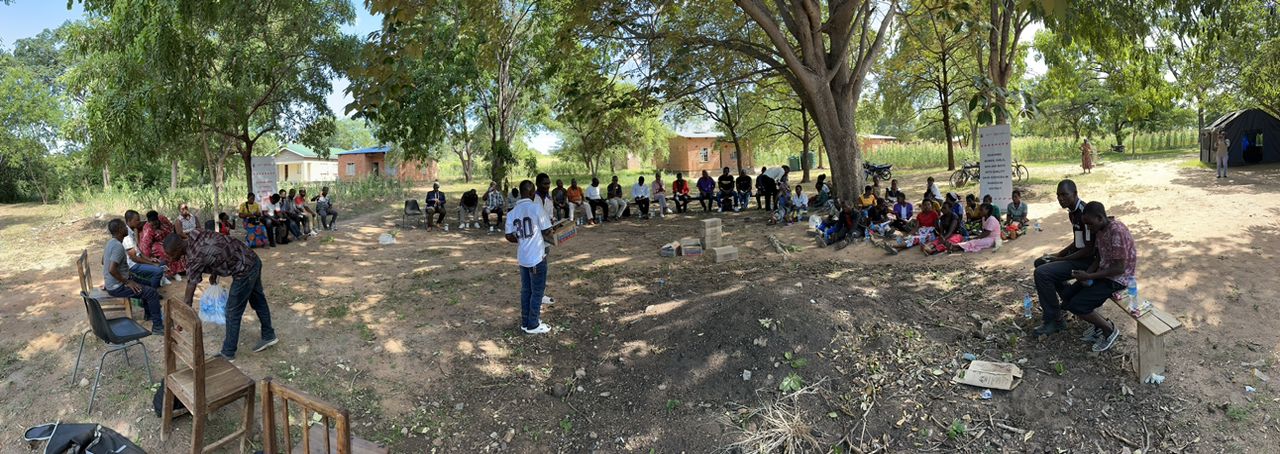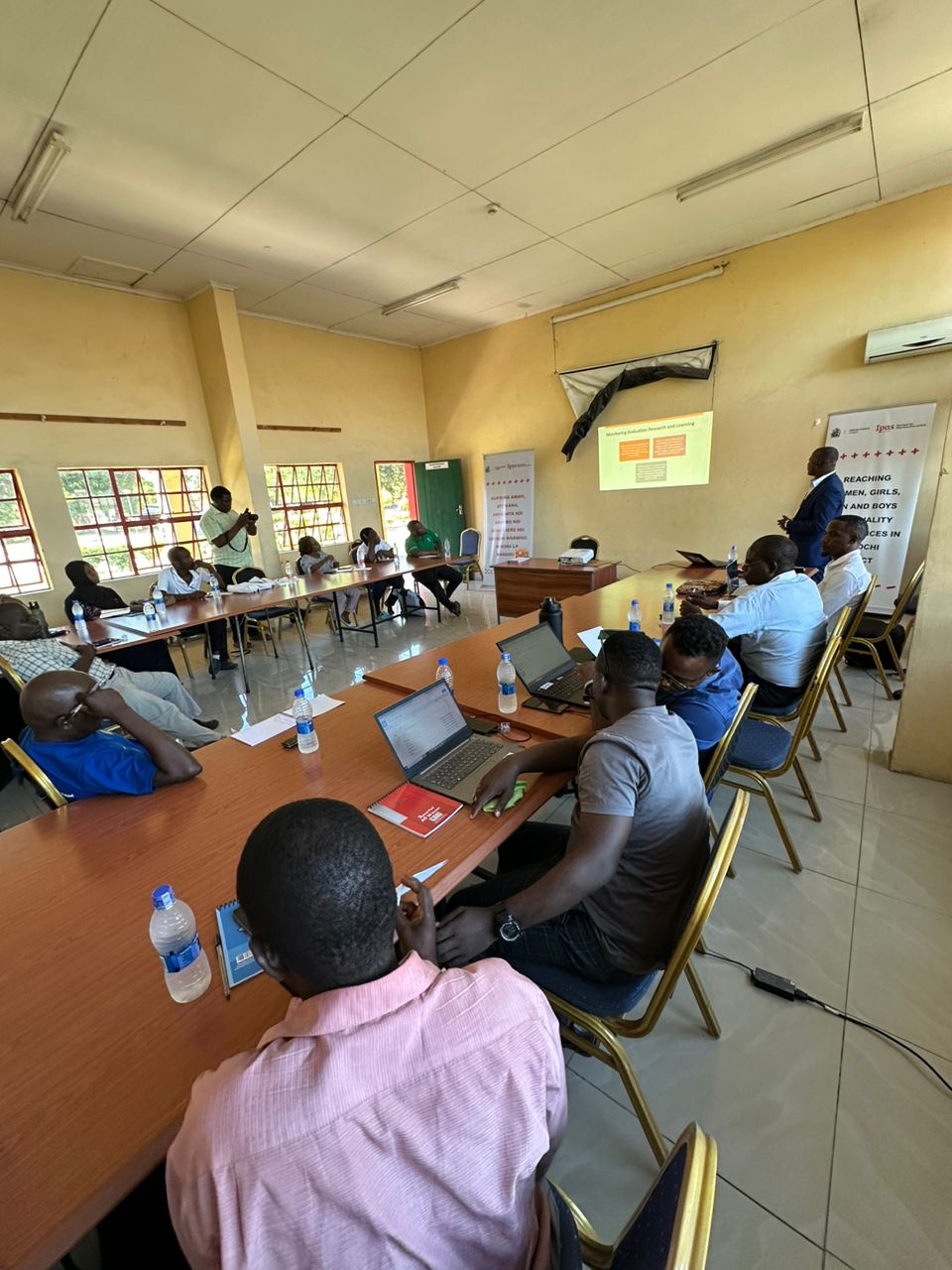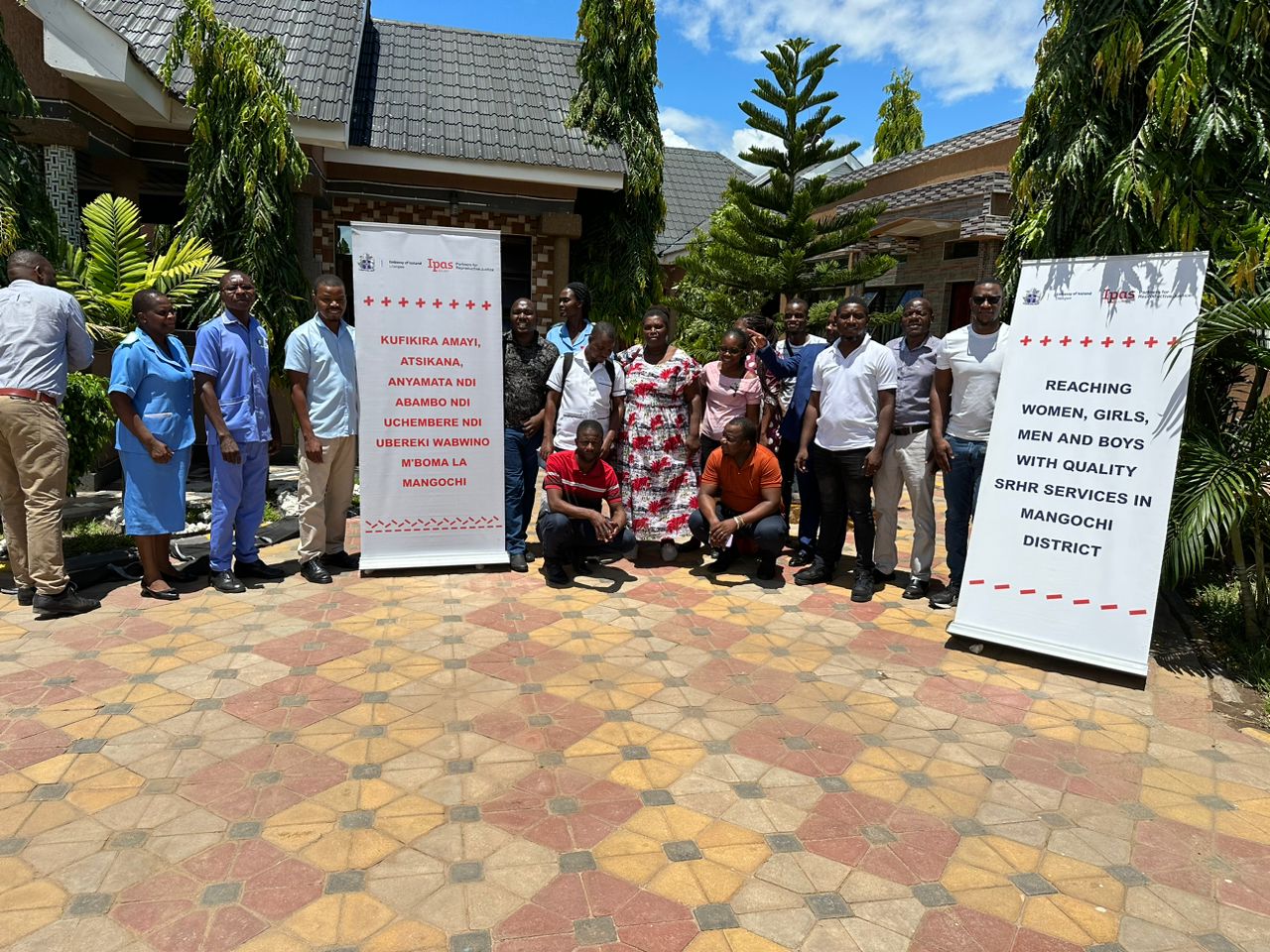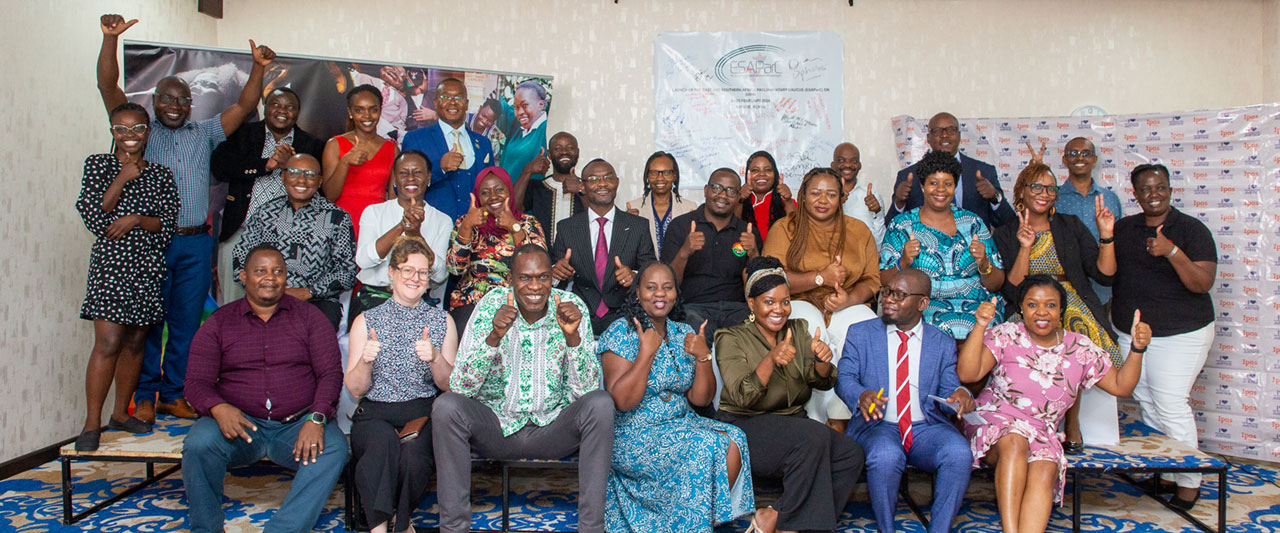Enhancing Pathways to Abortion Care
Women, girls, and all people who can get pregnant have a right to high-quality abortion care. Ipas partners with national governments to train health-care providers on woman centered abortion care, including postabortion contraception, and to clarify their values around abortion provision. Beyond our work with providers, we equip facilities, strengthen the supply chain for abortion and contraceptive commodities, and improve data collection and analysis. Across our implementation countries, we are viewed as a valued partner in the SRHR space.
As Ipas Africa Southern Region, we are diversifying our approach to SRHR, bringing in Climate Justice, Sustainable Abortion Ecosystem, Digital platforms in SRHR as well as capacity building of various stakeholders.
Ipas also works with governments to develop and implement policies on safe abortion and contraception.
Around the world, millions of women and girls choose to access medical abortion drugs outside of the formal health system and manage their own abortions. The WHO recognizes that abortion selfcare is safe and effective when women and girls can estimate gestational age, have accurate information, and can access follow-up care if needed. Ipas supports this pathway as part of a sustainable abortion ecosystem.

Malawi
In Malawi, Ipas supported the Ministry of Health to finalize standards and guidelines (S&Gs) for post-abortion care. The new S&Gs outline the skills needed and cadres permitted to provide care, in alignment with WHO 2022 standards and guidelines to guide the provision of comprehensive abortion care to women and adolescent girls. The CAC (Comprehensive Abortion Care) training materials have since been submitted to the Ministry of Health for review.
South Africa
In South Africa, Ipas has signed a 5 year MOU with the National Department of Health (NDoH) to support departmental priorities on improving access to safe and quality abortion services, by training medical practitioners registered midwives and nurses.
Ipas is also partnering with the NDoH to identify barriers that prevent women from accessing safe abortion, contraceptives and other SRHR services by conducting Values Clarification for Action and Transformation (VCAT) to reduce stigma. Ipas is also one of the partners in the Technical Working Group that supporting the adaptation of 2022 WHO Safe Abortion guidelines to the National Clinical Guidelines for the implementation of the Choice on Termination of Pregnancy Act (CTOPA).
Zambia
In Zambia we orient private pharmacists on the legal framework for abortion and the importance of providing correct, full guidance on the use of abortion drugs.
Engaging Communities
Ipas collaborates with communities to strengthen social norms that support individuals’ right to reproductive decision making, free from stigma and discrimination. Our teams build relationships with community actors, help them explore and clarify their values around abortion, and provide grants for a wide range of community outreach and stigma reduction activities.
Ipas Africa Southern Region partners with Neighbourhood Health Committees, Safe Motherhood Action Groups, Community Health Assistants. and Youth Friendly Corner Peers. These partnerships strengthen referral pathways that connect women and girls to health facilities and services. We support our community based partners to conduct outreach campaigns, community dialogues, door-to-door campaigns and local radio shows, that challenge abortion stigma, sparks conversation around SRHR and promotes locally available abortion services.
Zambia
In Zambia, we conducted climate change, gender, and Sexual Reproductive Health meetings to Block Leaders, Commissioner of Refugees’ staff, UNHCR staff at Maheba Refugee Camp and Local Government Officials respectively.



Building political commitment and leadership
The right to an abortion depends upon people also having other human rights: to health, to equality, to privacy, and to live free from violence and discrimination. That’s why Ipas works with diverse partners toward a world where all human rights including sexual and reproductive rights are respected, protected, and fulfilled. At the country level, we partner with civil society groups that advocate for progressive laws.

Malawi
In Malawi, Ipas helped to establish and serves as secretariat of the Coalition for the Prevention of Unsafe Abortion, which educates the public on the consequences of unsafe abortion and builds grassroots momentum for law reform among policymakers, community-based organizations, chiefs, religious leaders, lawyers, health providers, and young people. We also contributed to the 2017 release of a draft Termination of Pregnancy (TOP) Bill that supports expanded abortion access. Ipas continues to advocate for the TOP Bill’s enactment in Parliament, sensitizing policymakers and partnering closely with the Ministry of Health.
Climate and Humanitarian efforts
Climate change has significantly impacted the environment, human health, migration, and socio-economic systems, leading to humanitarian crises. There have been more frequent and intense natural disasters such as hurricanes, floods, droughts, and wildfires in ASR countries, that have caused displacement of people, and destruction of infrastructure. This translates to an increased impact on Sexual and Reproductive Health and Rights (SRHR), exacerbating existing vulnerabilities and creating new challenges.
ASR has played a critical in addressing climate change-related challenges on SRHR.
Ipas Personnel with MOH Officials Brave River Crossings to Reach Healthcare Facilities and Support Flood-Displaced Communities During climate justice project to Advance access and availability of SRH services in disaster prone areas – Chama District, Eastern Province, Zambia
Malawi
In Malawi, Ipas donated various SRH commodities and supplies to affected people following the devastating effects of Cyclone Freddie.
Zambia
In Zambia, Ipas applied the Values Clarification and Action Transformation (VCAT) approach in Maheba refugee settlement to address the stigma associated with SRH services in humanitarian settings. Ipas also trained On-the-Job master trainers to cascade training in climate disaster-prone areas. This ensured the continuity of SRH services during and after climate change-related disruptions.
Our Impact
Facilitated the establishment of the Eastern and Southern Africa Parliamentary Caucus comprising Members of parliaments from the two regions.
In Malawi
Post-abortion care services supported
Advocated for abortion law reform.
Strengthened youth- and women-led organizations through grants making project.
In South Africa
Master Trainers trained in the Eastern Cape Province, supporting expansion of access to CAC.
Reviewed progress on Ipas and partner’s action plans and implementation of the SAE in Gauteng and Limpopo provinces. Also conducted SAE assessments in the Free State, Kwa Zulu Natal provinces KZN (2022). South Africa.
Convened dialogues on the intersections between Climate change and SRHR in KZN and Gauteng provinces and further co- developed a submission on the Climate Change Bill.
Together with other stakeholders, developed a parliamentary submission on Gender Based Violence and Femicide Bill.
Contributed to the NDoH’s Digital health protocol on digital self-care SRH services including Medical Termination of Pregnancy.
In Zambia
Safe abortions were supported
Women received modern contraception withour support
Abortion providers trained under the Nurses and Midwives Act
Collaborated with ministry of health Zambia to develop a standardized comprehensive abortion care curriculum.